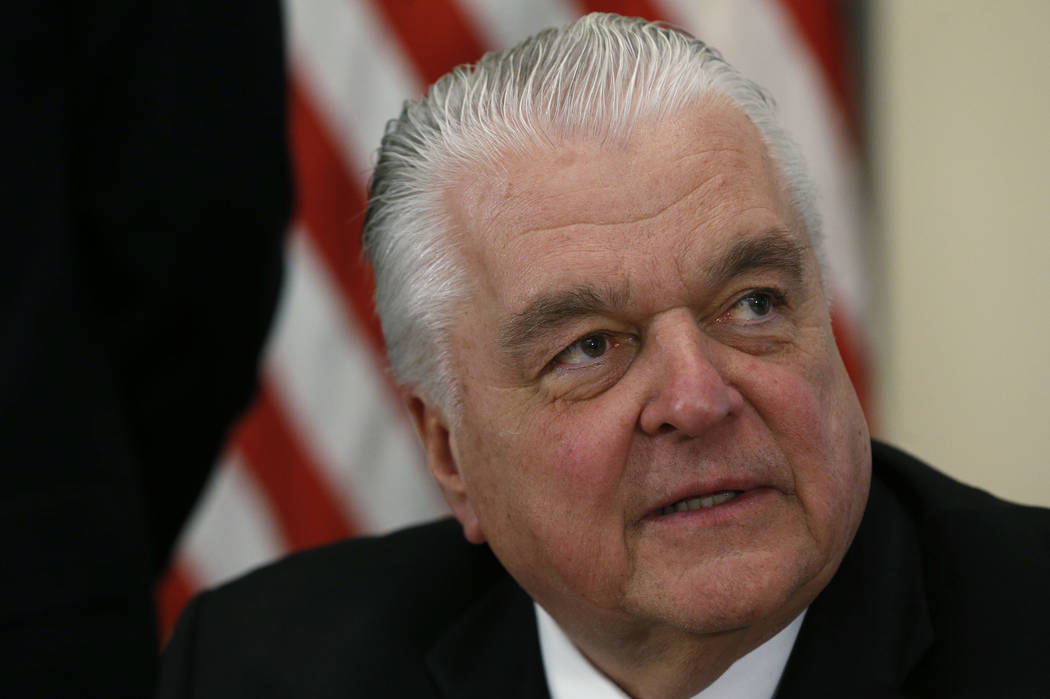Sisolak joins other Nevada Democrats in calling for end of caucus
Gov. Steve Sisolak joined other top state Democrats on Tuesday in calling for Nevada to retire the system of party-run caucuses to choose a presidential candidate and switch to primaries.
In a statement released through his campaign committee, the governor noted that in spite of reforms, including same-day registration and an early voting period, the caucus process “has fundamental challenges that make it too difficult for too many Nevadans to participate.”
“As we look ahead to the next presidential election cycle, I believe we must further open up the process of selecting our nominee and I intend to work with our state party and leaders in the State Senate and Assembly to review how we could switch to an early presidential primary,” the governor said.
Vermont Sen. Bernie Sanders won the Nevada caucuses Saturday, beating the No. 2 finisher, former Vice President Joe Biden, by a ratio of more than 2-to-1. Former South Bend, Indiana, Mayor Pete Buttigieg finished third.
Sisolak’s comments echoed those over the weekend and on Monday from former U.S. Sen. Harry Reid and state Democratic Party chairman William McCurdy II. Reid called for Democrats to do away with caucuses entirely and institute primaries in their place. McCurdy called for a “serious conversation” on changing the system.
Caucuses are run by political parties at set times and in specific locations. Voting is done in the open by registered party members who are able to attend, with the results used to name delegates to party nominating conventions at the county, state and national levels.
Primaries are like other direct elections that are run by state and local elections officials. Voters cast secret ballots, and the results are used to determine delegates to national party conventions.
In the 2020 presidential cycle, only Nevada and four other states — Iowa, Kentucky, North Dakota and Wyoming — have scheduled either Democratic or Republican caucuses. In addition, several U.S. territories have caucuses.
Problems in Iowa with reporting and tabulation of caucus results led to widespread concern that Nevada’s caucuses might suffer a similar meltdown, but only minor, one-off issues are known to have occurred here.
A New York Times analysis of the final caucus numbers found flaws in roughly 9 percent of the nearly 2,100 caucus precincts across the state, most of which had to do with inconsistent vote counts carried over between the two rounds of voting.
According to the state Democratic Party, more than 105,000 people participated in the Nevada caucuses, with about 75,000 voting in the four days of early voting that preceded them. That represents about 17 percent of active registered Democrats in the state.
















